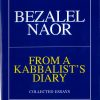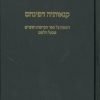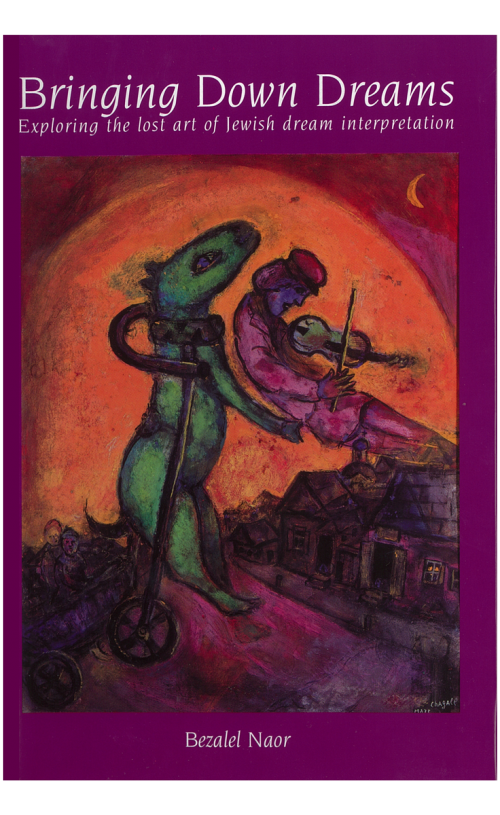Description
Bringing Down Dreams
Exploring the Lost Art of Jewish Dream Interpretation
-
Joseph
-
Daniel
-
Rabbi Hayyim of Volozhin
-
Rabbi Abraham Isaac Kook
-
Rabbi Hayyim Beliach
-
Rabbi Elijah Eliezer Dessler
What do all these men have in common? Each participated in an ongoing dialogue concerning the validity of dreams. This book offers the reader rare sources such as Rabbi Hayyim Beliach’s essay Petiha le-Mar’ot ha-Nevu’ah (Introduction to Prophetic Visions). It also makes available for the first time in English translation Rav Kook’s commentary to Perek ha-Ro’eh (The Chapter of the Seer). Finally, familiar Bible stories are given a fresh appraisal. All in all, a valuable contribution to the perennial wisdom of dream analysis.
“Bringing Down Dreams is a jewel and a joy to all those who toil in grappling with the complexity of man’s inner life. Bezalel Naor has established himself not only as a poter halomot (interpreter of dreams) but as a topher halomot (sewer of dreams), weaving an exquisite tapestry of rabbinic interpretations, views and reflections on man’s inner life with its rich symbols and meanings.”
—Yitzchak Schechter, PsyD, Clinical Psychologist Director, Center for Applied Psychology@Bikur Cholim—Partners in Health
Read the excerpt
Dreams of Psychic Transformation
To say that I am a disinterested observer of dreams would be a lie. As many, over the years I have been passionately involved with dreams, my own and others’. On two occasions, I have had my dreams analyzed by professional dream interpreters. The first episode involved a psychoanalyst. [Though it is not germane to our discussion, the analyst, who has since passed on to his eternal reward, had some Judaic background. He once made the interesting observation that in Kabbalah the term for the Infinite is Ein Sof (without end) as opposed to Ein Tehillah (without beginning)]. I revealed to him my dream of the night preceding our scheduled meeting. I dreamt I was on safari. Our group were dressed in attire appropriate for a safari: Khaki shirts and pants, and pith helmets. Our group leader brandished a machete, hacking away at the vines, as we made our way through the thick overgrowth of jungle. My intuition told me the man was an impostor. He posed as an expert guide when in reality he was unqualified to lead the expedition. As the trek proceeded, my misgivings concerning our guide grew more pronounced. I awoke with a feeling of anxiety.
The analyst sized up immediately the import of the dream. “You have misgivings as to my competence to lead you through the jungle of the unconscious.” No sooner had the words left his mouth than the truth of what he said hit me. As the Talmud puts it, “Words of truth are recognizable” (nikarin divrei emet).
The second incident concerns a well-known Algerian practitioner living in Jerusalem. La grande dame, who I gathered was indisposed, lie in bed, surrounded by young disciples assembled from all over the globe to learn from her the technique of dream therapy. She asked me for my latest dream. I volunteered that I had recently dreamt my tooth fell out. Madame interpreted the tooth trouble as symbolic of conflict with enemies. She went on to explain that in French there is an expression, “Avoir une dent contre quelqu’un” (to have a grudge against someone). Incidentally, Rabbi Isaac of Komarno records in his memoir Megillat Setarim, that on a certain evening he dreamt he lost two teeth at one fell swoop. In the dream itself this was interpreted to mean two of his enemies (of whom there was no dearth) would be uprooted in one day!
These are two dreams I shared with persons presumed competent dream analysts. There have also been dreams others entrusted to me. As I retrospect, there sticks out in my mind a dream confided to me by a young woman who at the time was a premed student and has since gone on to become a talented medical person. In the dream, the woman saw she gave birth—to herself! She described the dream in wonderful obstetrical detail. In this case, I was able to be of help. Having read the collected works of C.G. Jung, and the novels of Hermann Hesse, which are thinly veiled reworkings of themes from Jungian psychology, it was not difficult for me to assess that the dream concerned spiritual rebirth.
Today, I would be able to explain that this vision of birth is the essence of the kabbalistic interpretation of the Exodus from Egypt, commencing with the paschal lamb and continuing through the forty years of wandering in the Sinai wilderness. For a start, the paschal lamb sacrificed the eve of the departure from Egypt, was roasted on a spit over the fire, “its head upon its legs,” assuming classic fetal position. This symbolizes the Israelite nation as a yet unborn fetus. Seven days later, the children of Israel crossed the Reed Sea. Keri’at Yam Suf, the tearing of the Reed Sea, was a tearing of the walls of the womb.“The children of Israel walked upon dry ground in the midst of the sea, and the waters formed for them a wall on their right and on their left.” This alludes to the baby’s passage through the birth canal. When they arrived on the far shore, Israel emerged as a nation distinct from the host nation of Egypt. Finally, almost immediately after the birth of the nation, the Israelites were fed the miraculous manna. “It was like coriander-seed, white, and its taste was like wafers made with honey,” reminiscent of mother’s milk. What the young premed student envisioned on the individual level, was very much the collective experience of the Jewish People!





Reviews
There are no reviews yet!